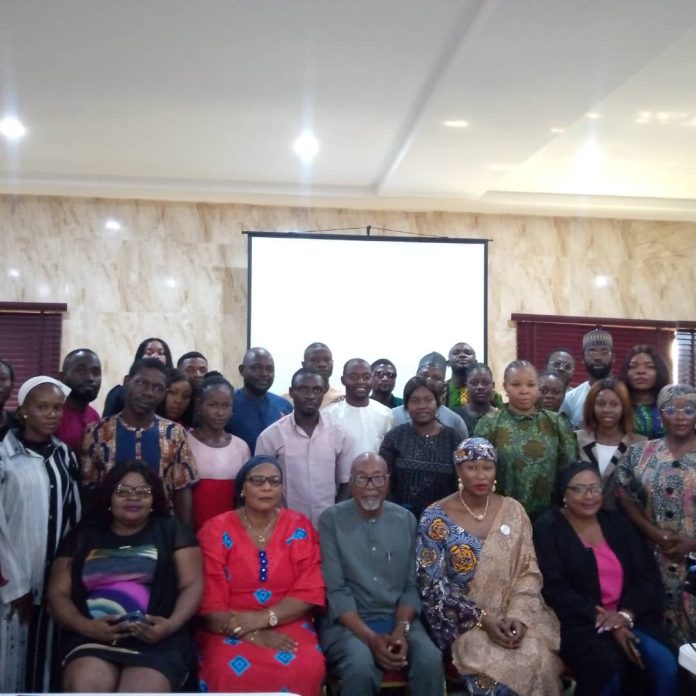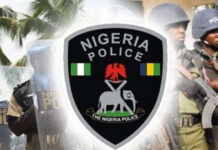.
….CSO trains, challenges youths on democratic governance, political participation
The Initiative for Research, Innovation and Advocacy in Development (IRIAD) in collaboration with the Nigeria Civil Society Situation Room, has commenced training of young Nigerians on democratic governance aimed at boosting youth political participation and strengthening local level elections in Nigeria.
The training commenced on Monday in Abuja with the theme “Deepening Youth Understanding and Commitment to Democratic Governance.”
Speaking on Democracy and Democratic Governance, Prof.Ogoh Alubo of the University of Jos, noted that democracy is the preferred system of government, adding that there are societies where there are good infrastructure and other social amenities, but the citizens lack the fundamental right of the freedom of expression.
Alubo who decried politics of “godfatherism” and money politics in Nigeria, also lamented lack of political ideology by political parties, as well as politicians, among others.
EITI 2023 Validation Report on Nigeria: CSOs task Tinubu on urgent remediation
He said,”I believe that the youth should be in the system. As the political system keeps going on, the current crop of politicians will retire and some may pass to eternity, so we need to be bringing up training for the next generation that will replace them. That’s why we have a crucial role for the youth, so we cannot keep them out of the system.”
On if money politics is succeeding in Nigeria, he said,”What I do know is that those who have deep pockets are able to get their way. Look, see what happens when there was a national convention, some people came to convention, and they got enough money to buy a car. So, those that have the money seem to be buying their way and getting the party ticket.
“So does that mean success or not? I don’t know. But money does play a very crucial role at every stage of the contest. We must look beyond the individual characters. We must look at the success of democracy and the extent to which we carry people from every level of the population. The young people, the old people, rich people, poor people, women, people who have disabilities, and it’s only when we do that I can talk about success.
“Part of what the workshop is trying to do is how to get the young people look at things differently. Can we get people to have a different understanding of democracy, that is not an investment for people to be recruited to make money, but that democracy is actually going down there to provide service to help the people. If we have a reconceptualization that political story will change.”
The Director, IRIAD/The Electoral Hub, Princess Hamman-Obels, speaking on “Safeguarding the Integrity of Elections and Democratic Governance, noted that citizens electoral preferences and decisions impact their lives, adding that it does not matter whether the citizens participate in the process or not.
She said,”Your electoral preferences and decision matters to you and your every day life. It does not matter whether you vote or not. Elections in Nigeria shows us how social group align, elections are fundamental to the ethos of democracy.
Anniversary : Adeleke reiterates commitment to good governance, democratic dividends
“One of the pillars of democracy is participation and inclusion. You cannot have democracy without the freedom of participation.”
Hamman-Obels stressed that election in Africa should allow for equality of political participation and free competition among interest groups.
“Elections allow for equality of political participation and free competition among interest groups. And are one of many ways of choosing leadership and disposing of old governments in a political system.
“Political participation in democracy is based on the notion of citizens’ political equality.
“Political equality implies individuals who so wish can form a political party and contest in elections on thesame conditions. And also all citizens of age and mental sanity should be able to cast their vote based on the principle of one man one vote.
“In essence, the sovereignty of the people should be distributed equally.”
The Political Activist harp on the need for fair elections in Nigeria.
“A fair election should include; proper ballot boxes, impartial assistance of voters, transparent counting procedures, proper handling and transportation of the ballot, and other sensitive election materials.
“Others include, expeditious announcement of election results, an impartial and expeditious election complaints resolution system, impartial media coverage of elections and equitable media access for all parties, acceptance of election results by all stakeholders.m,”she said.
She noted that election is a competition, adding that part of what stakeholders should know is that election is competition, urging participants not to allow their emotions becloud their sense reasoning, and the need for the application of proper strategy to win elections.
Hamman-Obels stressed that elections are a process but not an event, adding that the processes are complex.
“Electoral processes are complex, standardized activities that require clear, simple and relatively comprehensive legal definition in order to promote consistency, equality and a common understanding of electoral frameworks by all elector stakeholders.
“Every election comprises numerous elements and involves multiple institutions and actors throughout the pre-election, election, election day and the post election period, all of which affect the transparency, inclusiveness, accountability, and competitiveness of the election. So, it means that it is not only INEC that conducts the election,” she explained.
On the legal framework for Democracy and Democratic Governance, the CEO, Nigerian Women Trust Fund (NWTF), Brenda Anugwom stressed that the legal framework is key to getting Nigeria’s electoral process and democracy right.
Anugwom therefore stressed that lack of adherence to the legal framework has been at the core of the electoral crises that has marred the country’s political processes and democracy.
She decried what she described as “democracy without election” as anomaly that should be addressed for Nigeria’s democracy to thrive.
Stakeholders/participants in the workshop agreed that there is need for increased sensitization and training of youths to deliberately participate more in the electoral process. It was also noted that youths and citizens at large should avoid political sentiments and emotions that rob them of effective participation in politics.




